College of Medicine
COM Students Awarded USC Medical Education’s “Best of Cool Ideas 2020”!
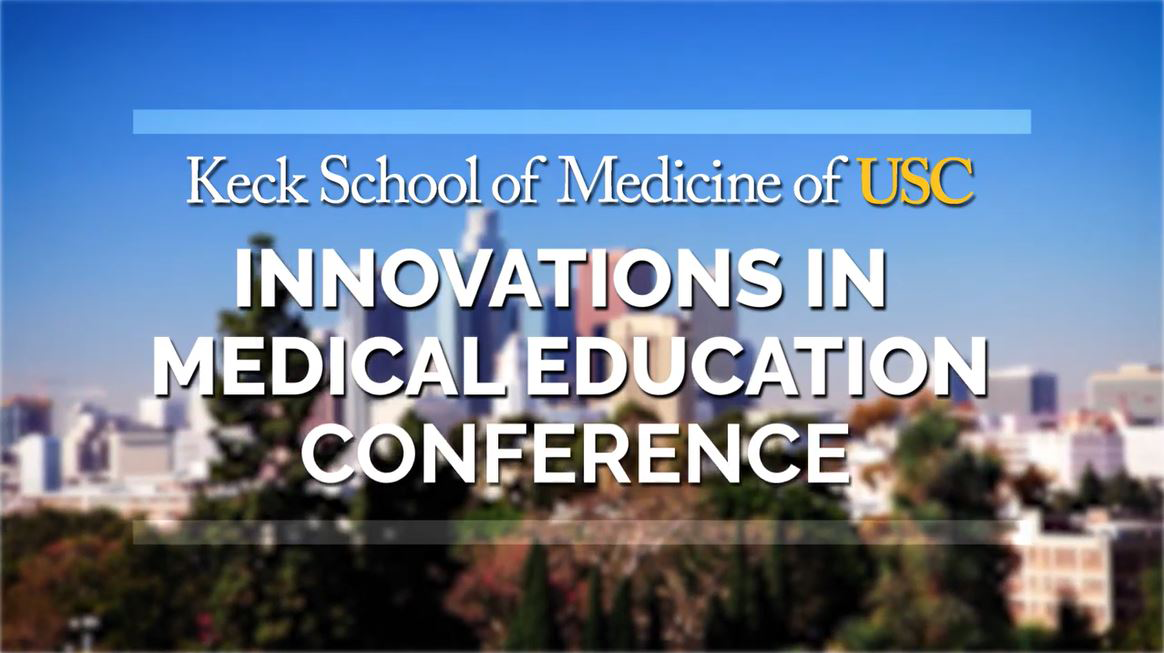
CONGRATULATIONS are in order for Adriana (Dree) Kavoussi and John Heard, fourth-year students in the College of Medicine, who recently were awarded “Best
of Cool Ideas 2020” honors from the University of Southern California’s annual Innovations
in Medical Education Conference.
The event, sponsored by the Department of Medical Education at USC’s Keck School of
Medicine, brings together a collective of thought leaders, leaders in higher education,
healthcare providers, and students in the health professions with the goal of encouraging,
developing, and promoting education and training that inspires a higher standard of
excellence and wellbeing across clinical professions.
This year, with the unexpected arrival of the novel coronavirus, physician burnout
reached new heights, and added pressures of pandemic mitigation continue to severely
compromise the mental health and well-being of our frontline clinicians. In response,
Ms. Kavoussi and Mr. Heard presented the frameworks of a Downstate program designed
to support and protect our healthcare workforce throughout the unique challenges they
experience on the job.
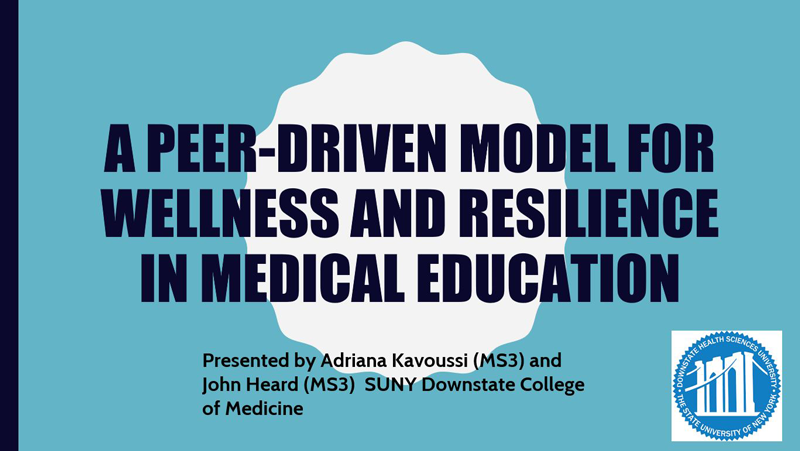
Founded by Class of 2019’s Robert Kim, M.D. and Michael Levine, M.D., The Peer Mentorship and Wellness Program, now in its fifth successful year, offers
a seven-session curriculum where first-year COM students meet in small groups led
by second-year COM students. Each session centers around evidence-based tools proven
to decrease burnout and increase resilience. At the conclusion of the program, students
are surveyed using measurements that explore depression, anxiety, and burnout before
and after completing the program. Historical data from the program was presented at
the conference, illustrating that interventions executed during the program led to
decreased depression and anxiety amongst first-year medical students compared to national
averages—and ultimately landing them a win!
CONGRATULATIONS, once more, to Ms. Kavoussi and Mr. Heard on their much-deserved honor
and thank you for representing Downstate and the College of Medicine. I’d also like
to thank to Sophie Christoforou, MS.ED., Associate Dean for Student & Curricular Affairs, as well as COM students and Downstate
Wellness Club executive board members, Adam Goldman, Shelly Thai, and Tasnima Elahi, for their contributions to the success of this initiative.
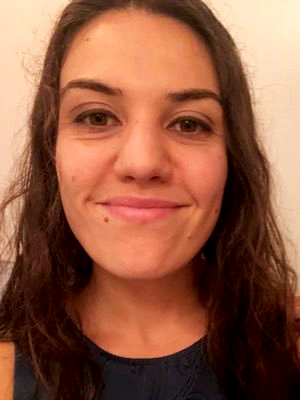
Adriana (Dree) Kavoussi earned her BA in Psychology from The University of California Berkeley and later
made her way to Downstate in 2017 as a part of the College of Medicine’s Class of
2021. Now in her 4th year of medical school, Ms. Kavoussi’s research interests and
expertise are in chronic pain and psychological distress, as well as woman’s mental
health and palliative care, and plans to apply to Psychiatry and Psych-Med residency
programs later this year.
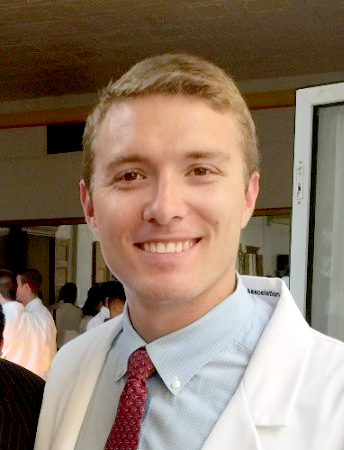
John Heard earned his BS from Tufts University ’13 Grad and his MS in Biomedical Science from
Icahn School of Medicine at Mount Sinai ’17 before joining the College of Medicine’s
Class of 2021. After more than three years at Downstate, Mr. Heard has developed
an interest in mental health, urology, and virus engineering research and will be
applying to urology residency programs at the close of this year.
College of Medicine PACERS: Outpacing the Oppressive System of Medical Racism
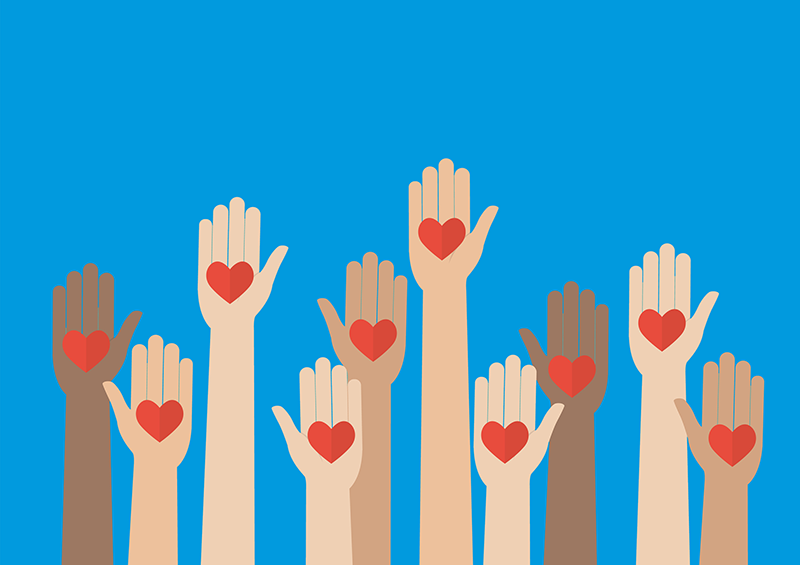
In the six months since our world has transformed—the looming and persistent danger
of COVID-19 has taken the United States by storm, inflicting unimaginable burdens
on our national healthcare system and resulting in the devastating loss of more than
170,000 American lives, to date. Though globally, the world has adopted the “in this
together” mantra, the unequal consequence and impact COVID-19 has had on marginalized
communities—particularly the Black community—has been impossible to ignore.
Here in the United States, black people account for a staggering 24 percent of COVID-19
deaths—nearly a quarter of all coronavirus deaths—yet the Black community only makes
up about 13 percent of the nation’s population. What coronavirus has put squarely
into focus for so many, especially members of the healthcare community, are the glaring
health disparities found in communities of color and the medical racism that drives
them.
In response to the alarming and continuous COVID-19 fallout, students in the College
of Medicine and the White Coats for Black Lives student organization rallied together
and compiled a list of opportunities for Downstate to positively impact our institutional
mission of health equity and social justice. Taking heed to our students call for
change, leadership in the College of Medicine sprung into action and launched the
Program to Accelerate Academic Careers in health Equity Research and Social Justice (PACERS)—a research program strategically developed to help further the understanding
of health disparities and to contribute to medical literature regarding health disparities
as a means for driving health equity.


Funded by our $10 million National Institutes of Health TRANSPORT Grant, and designed for doctoral students committed to developing an academic career that
focuses on addressing health equity and social justice research—the four-week PACERS Program introduces relevant frameworks for interpreting the nexus
between race, ethnicity, identity, orientation, disability, socioeconomic, and immigration
status.
PACERS will provide an academic space where students can accurately attribute the
root causes of disparities through an exploration of historic policies, race, racism,
and discrimination in health and healthcare, as well an opportunity to conceptualize
their own research ideas focused on topics related to health equity and social justice.
PACERS intends to develop leaders in healthcare who can conduct research, establish
and implement policies that adequately address structural racism and ultimately drive
measurable, sustainable progress.
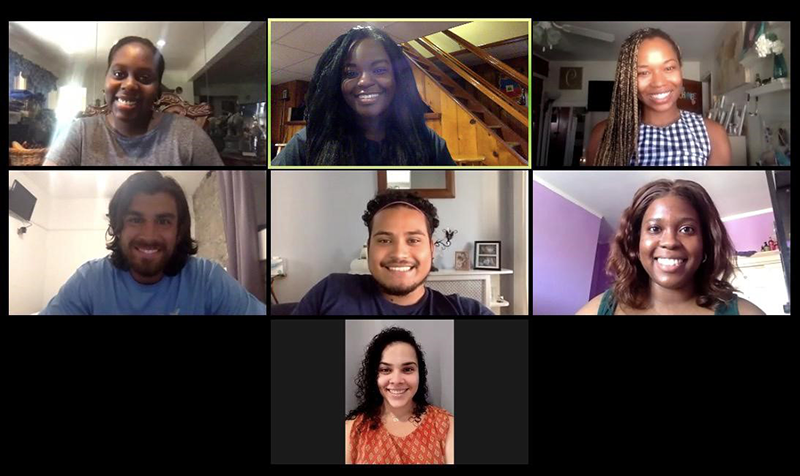
I’m pleased to report that the inaugural PACERS cohort—which included Colleen Beckford, MS2, Alexandra Belzie, MS2, Bertilia Tavarez, MS2, Alejandro Vega, MS2, Jose Erazo, MS2, Lindsey Ayanruoh, MS2, and Chanee Massiah, Doctoral candidate School of Public Health—recently completed the four-week program during the Summer 2020 Term.
CONGRATULATIONS to our first group of scholars for successfully finishing the program,
as well as for becoming vessels of change that will continue addressing these critical
issues in healthcare. And THANK YOU to all of our students in the College of Medicine
who continue to be exmplary activist and use their voices and minds to inspire meaningful
change.
I’d also like to extend my gratitude to Charles Brunicardi, M.D., FACS, Senior Vice President and Dean for the College of Medicine, for his vision to prioritize
the launch of this program during this most critical and impactful moment during the
ongoing movement; to Pascal James Imperato, M.D., MPH&TM, MACP, Founding Dean, Dean Emeritus, and Distinguished Service Professor for the School
of Public Health, Moro Salifu, M.D., MPH, MBA, Chair of Medicine, Chief of Nephrology Division and Director of the Kidney Transplant
Program and the Brooklyn Health Disparities Center, and David Christini, Ph.D., Senior Vice President of Research, for their leadership in designing the program;
to Carla Boutin-Foster, M.D., MS, Associate Dean of Diversity Education and Research, and Christopher Roman, Ph.D., Associate Professor of Medicine and Vice Chair of Cell Biology, for actively serving
as Program Co-Directors and for working with our students to inspire the change we
all wish to see; to Lori Hoepner, DrPH, MPH, Assistant Professor in the School of Public Health’s Department of Environmental
and Occupational Health Sciences, and Uche Nwokoma, M.D., MPH, Postdoctoral Research Fellow, for serving as the program instructors; and Shemeika Bowman, Program Administrator in the Office of Diversity Education and Research, Lakia Maxwell, MSCH, Brooklyn Health Disparities Center, and John Cleary for their seamless logistical coordination.
|